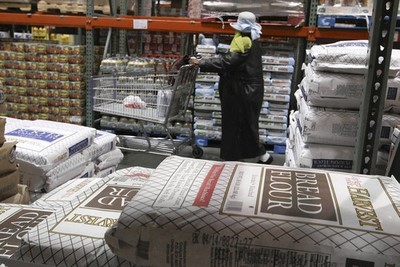
Since several months, I have been
reporting on the food crisis sparking hunger and riots in different parts of the globe.
Like in a perfect storm, different factors contributed to a disaster scenario: increased fuel prices, an artificial push for biofuel crops, adverse weather phenomena, changing food habits, increased demand and financial speculation on the futures markets (see
this summary)
As expected, the storm first hit the poorest countries, where food constitutes easily 40% of a family's budget. But now the bad weather has reached closer to home: the US and Canada.
While the first news articles only started to appear one or two days ago, and the symptoms are still scattered and early to detect, it does ring an alarm bell. An overview of what I have picked up so far:
In the US, rationing of some food commodities seems to be just around the corner:
- At the Costco in San Francisco, rice is all the rage. Not long after the 10 a.m. opening on Apr. 24, the warehouse was well on its way to selling out the day's supply of Thai jasmine rice. Within an hour, customers cleared three pallets loaded with 50-lb. bags of Super Lucky Elephant brand jasmine rice from Thailand. (
More)
- In a dramatic development for U.S. consumers this month, shoppers and Asian and Indian restaurant owners started panic-buying two of the highest-premium varieties of rice—Thai jasmine and Indian basmati. That led many grocers to run out of the rice, and warehouse clubs including Costco and Sam's Club imposed limits on how much rice shoppers can buy. (
More)
- The world's largest retailer, Wal-Mart, is restricting sales of rice. Sam's Club, Wal-Mart's cash-and-carry division, says customers can buy a maximum of four bags per visit. The prices of soybeans, corn and wheat have also soared and are currently near their all-time peaks.(
More)
- The owner of one restaurant in Oakland told a local television station that the price of a typical sack of rice had risen from $20 to $40 in a matter of weeks. A Vietnamese restaurant owner said his stockpiles were dwindling - and that the price of some vegetables had also risen by as much as 50%. (
More)
- Major retailers in New York, in areas of New England, and on the West Coast are limiting purchases of flour, rice, and cooking oil as demand outstrips supply. There are also anecdotal reports that some consumers are hoarding grain stocks. An employee at the Costco store in Queens said there were no restrictions on rice buying, but limits were being imposed on purchases of oil and flour. (
More)
- "It's fascinating; I don't recall anything like this in modern food-retailing and supermarket history in the U.S.," said Benjamin Senauer, co-director of the University of Minnesota's Food Industry Center. "You have to go back to World War II to see this." (
More)
- Ken Jarosch, president of the Chicago Area Retail Bakers Association and owner of a bakery in Elk Grove Village, said white rye flour, used to make rye, pumpernickel and marble bread, is in short supply, as is gluten flour, a binding ingredient. (
More)
In Canada, news bulletins headlines shout "Food panic hits Canadian stores" and "Food inflation the 'monster' around Canada's corner":
- Bruce Cran, president of the Consumers Association of Canada said he was getting calls in British Columbia that store shelves were being emptied of rice by panicked buyers. (
More)
- Maple Leaf Foods Inc., one of Canada's largest food processors, reported a loss on Thursday due to soaring costs for grain used in its bakeries and hog barns. (
More)
- David Wilkes, a spokesperson for The Canadian Council of Grocery Distributors, couldn't say how much Canadians can expect to see prices jump on grain staples such as rice and flour, he said the prices will begin to steadily climb. "I do believe that these changes are with us to stay." (
More)
- Soaring fuel and grain prices have some economic researchers warning of catastrophic food inflation and political unrest within a year, the likes of which hasn't been seen in Canada since the 1970s. (
More)
- However, rising food and energy costs will push overall inflation to more than double the March rate by next year, Toronto-based CIBC World Markets Inc. predicted in its most recent quarterly forecast. (
More)
- "Canadians aren't experiencing the same price hikes as the rest of the world. Having said that, it is coming," said David Wilkes, the council's senior vice-president of trade and development. (
More)
More articles on the Road about
the global food crisis.
Picture courtesy Justin Sullivan (Getty)
Read the full post...
 Jean Ziegler, the United Nations special rapporteur on the right to food, said the United States and the European Union have taken a "criminal path" by contributing to an explosive rise in global food prices by using food crops to produce biofuels.
Jean Ziegler, the United Nations special rapporteur on the right to food, said the United States and the European Union have taken a "criminal path" by contributing to an explosive rise in global food prices by using food crops to produce biofuels.


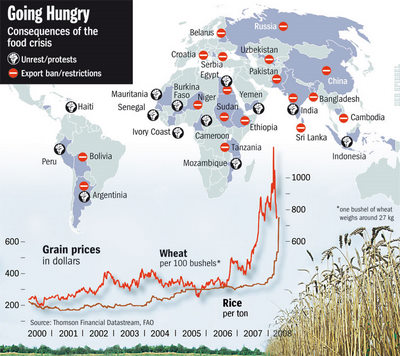

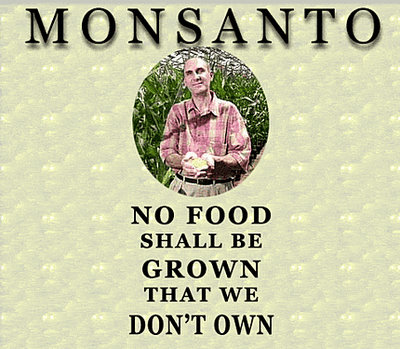



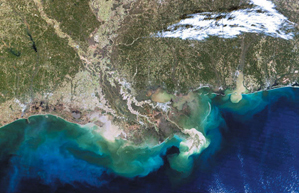

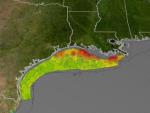



























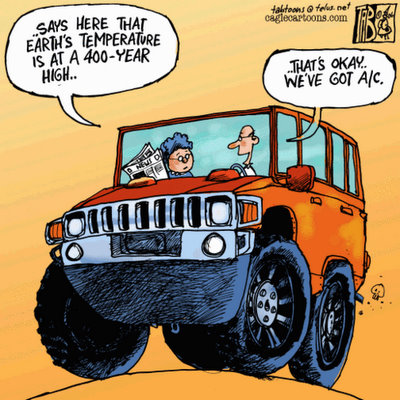







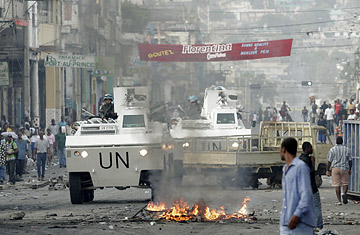







 Peter. Flemish, European, aid worker, expeditioner, sailor, traveller, husband, father, friend, nutcase. Not necessarily in that order.
Peter. Flemish, European, aid worker, expeditioner, sailor, traveller, husband, father, friend, nutcase. Not necessarily in that order.
The Road's Dashboard
Log in
New
Edit
Customize
Dashboard